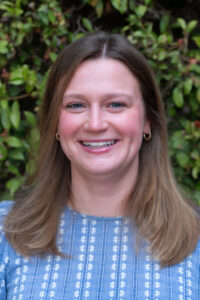Where limits don't exist.
Home > Departments > Mathematics Courses
Mathematics
The Mathematics Department at Cate will encourage you to be a confident and competent mathematician, and, as a result, a better thinker.
The coursework is designed to prepare you for tasks in your life in which you will be using mathematics or be required to think mathematically. You will find yourself using technology in class, studying in groups, competing in contests, and working on the board solving engaging problems. You will take one course a year through your junior year, the final course determined by the initial Cate entry level.
Cal-Math League Champions
Cal-Math League Champions
For the last 25 years, Cate has been a leader in local California Mathematics League competitions, winning many county titles and finishing among the top schools in California. Last year, over 150 students and faculty participated – more than half of the School. Students also compete in the Westmont College Mathematics Contest and the American High School Mathematics Contest each winter.
Problem-Based Learning
Problem-Based Learning
In the Math classroom at Cate, you will encounter problem-based learning, where you will use questions to explore sophisticated mathematical concepts. Learn more here.
Math 2 is a problem-solving course where the ultimate goal is for students to gain confidence in their ability to make sense of a problem, and once a problem is understood, to apply mathematical knowledge and tools strategically during the problem-solving process, and to persist in solving the problem. At this level, the course provides students with a rigorous, integrated, and in-depth study of algebra processes and geometric principles. Topically, there is a major emphasis on quadratic functions: factoring, graphing, moving between forms, the inverse (the square root function), using quadratics to model scenarios, and using quadratics for the purpose of optimization. Absolute value functions and new forms of linear functions are also explored. In addition to investigating exponent rules, algebraic fractions, and imaginary numbers, students are asked to connect their understanding of algebra to topics in geometry, such as linking equations of quadratics to the geometric definition of a parabola and solving polygon problems on the Cartesian coordinate plane. Other classic types of algebra problems include advanced distance-rate-time questions, shared work, mixture problems, and systems of equations. This class will also cover topics in Euclidean Geometry including polygons (with an emphasis on triangles), their properties and proofs, parallel lines and angle relationships, and circles. We use a variety of materials, including iPad technology, graphing software like Desmos, and problems from “Math 1” and “Math 2” written by the math department at Phillips Exeter Academy to use pattern-building in the service of eventually developing mathematical generalizations. In this course, the math topics are valuable, but equal importance is given to the style in which students take on responsibility for thinking critically, creatively, and collaboratively. This course may serve as a transition into Algebra 2 and Trigonometry or, for those who excel and find the curriculum rewarding, it can also serve as an entry point to our Honors Problem Based Learning strand. Prerequisite: an Algebra 1 course, Math 1, or the equivalent and consent of the department.
Pre-Calculus: Functions builds on the foundation laid in Algebra 2 and Trigonometry. Students delve more deeply into transformations, inverse functions, and composition of functions while continuing to strengthen their graphical reasoning and symbolic manipulation skills. Writing equations, solving or evaluating them, and interpreting results are emphasized as students work with problems in context. Students write equations to model physical situations (tides, population growth, projectile motion, etc) and to set up and solve optimization problems, and they continue to use Desmos in problem solving. This course provides a thorough study of functions as a preparation for calculus. Entering students should have a strong background in Algebra, usually meaning B or better in Algebra 2 and Trigonometry.
Prerequisite: Algebra 2 and Trigonometry or Honors Math 3.
Advanced Calculus 1 is a college-level mathematics course designed as an introduction to a variety of topics relating to integral and differential calculus including functions, graphs, limits, the conception and application of derivatives, the interpretation and application of integrals, and the fundamental theorem of calculus. The course outline focuses on the tools of calculus for problem solving. Prerequisite: Pre-Calculus: Functions and consent of department.
Inquiry in Mathematics
Meet the Faculty
 Mathematics Department Chair
Mathematics Department Chair
tobin_white@cate.org / 805-684-4127 x113
BA, Bates College
MS, Virginia Tech
PhD, Stanford University
Appointed: 2018
Dr. Tobin White began his teaching career as a mathematics teacher and department chair at Hebron Academy in Maine. After earning his PhD in Mathematics Education from Stanford University, he spent 14 years as a professor at UC Davis, where he taught undergraduate and graduate education courses and conducted research on innovative technologies for teaching math and science. His accolades include the Jan Hawkins Award for Scholarship in Learning Technologies, a National Science Foundation CAREER award, and recognition as a UC Davis Chancellor’s Fellow in 2015.
At Cate, Tobin teaches mathematics and serves as head swim coach. He enjoys swimming, running, hiking, playing guitar, and baking. Has three sons, Zachary ’24, Benjamin ’25, and Oliver, and he lives off campus with his wife, Melissa.
Mathematics Instructor
ozlem_arconian@cate.org / 805-684-4127 x106
BA, Bogazici University
MPhil, University of Surrey
PhD, University of Surrey
Appointed: 2023
Originally from Istanbul, Ozlem Arconian is a development economist with a rich background in teaching and policy research. She has served as an Associate Professor in Economics at the University of London (SOAS) and UC Santa Barbara’s Orfalea Center for Global and International Studies. Her career also includes roles at the International Monetary Fund, Dresdner Kleinwort Investment Bank, and leading policy research organizations such as 3ie and DFID.
Ozlem’s work focuses on economic development and impact evaluation. She continues her interdisciplinary research while volunteering with local non-profits. She lives off campus with her husband, Alex, their son, Emil ’26, and daughter, Ella.
 Mathematics Instructor
Mathematics Instructor
ashwin_atre@cate.org / 805-684-8409 x112
BSE, Princeton University
MS, Stanford University
PhD, Stanford University
Appointed: 2021
A proud member of Cate’s Class of 2005, Dr. Ashwin Atre returns to the Mesa with a deep appreciation for the School’s impact on his life. After earning his BSE in Chemical Engineering at Princeton University, Ashwin pursued a PhD in Materials Science at Stanford, where his research spanned topics from renewable energy to nanoscience innovations like invisibility cloaks.
Following his doctoral work, Ashwin embarked on a remarkable road trip with his wife, Olivia Sparkuhl ’06, traveling over 33,000 miles through 18 countries from California to South America. Drawn back to Cate’s vibrant community, Ashwin is thrilled to contribute as an educator.
Ashwin lives in Carpinteria with Olivia and their children, Bodie and Roohi.
 Mathematics Instructor
Mathematics Instructor
emma_henderson@cate.org / 805-684-4127 x342
BA, University of Richmond
Appointed: 2023
Emma Henderson joins Cate from the White Mountain School in New Hampshire, where she taught math, coached hiking and soccer, and led experiential learning courses. Her summers at Kingsley Pines Camp in Maine, including her role as Girls Campus Head, deepened her love for residential communities and her commitment to fostering the holistic growth of young people.
At Cate, Emma serves as the dorm head for Bothin/Parsonage, an advisor, a JV soccer coach, and a leader in the Outdoor Program, including Yosemite Outings Week.
She lives on the Mesa, where she loves being surrounded by views of both the ocean and the mountains.
 Mathematics Instructor
Mathematics Instructor
jose_molina@cate.org / 805-684-4127 x252
BS, Cal State Bakersfield
MS, Long Beach State
Appointed: 2022
José Molina brings decades of teaching experience to Cate, with prior roles at Bellarmine College Prep and Phillips Exeter Academy. A member of the SAT Mathematics Review Committee (2010–2017) and a Calculus AP Reader since 2001, José is dedicated to advancing math education. His accolades include being named University of California Influential Teacher twice and New Teacher of the Year at Phillips Exeter in 2019.
In addition to his passion for mathematics, José holds a National C soccer coaching license and a National Diploma from The United Soccer Coaches.
José enjoys road and mountain cycling, hiking, and volunteering. He lives with his wife, Francy, their sons Felipe and Santiago, their cats Cupcake and Brownie, and their Maltipoo, Rex.
 Dean of Academics
Dean of Academics
Mathematics Instructor
annalee_salcedo@cate.org/ 805-684-8409 x271
BS, Yale University
MAT, Simmons College
Appointed: 2009
Annalee Salcedo brings a diverse background in education, leadership, and outdoor experiences to Cate. Before joining in 2009, Annalee worked with City Year in Boston and South Africa, instructed for Outward Bound, and taught in private and public high schools in Boston. At Cate, she has served in numerous roles, including Math Department Chair, Yosemite Trip Leader, Faculty Trustee, and coach for various sports.
A recipient of the Paul M. Denison ’52 Chair and Cate’s Centennial Fellowship Award, Annalee has also presented at conferences on math education and project-based learning. In 2023, she completed a 5,500-km self-supported bike trip through 12 European countries with her family.
Annalee lives on campus with her family, including her two teenagers. Outside of work, she enjoys rowing, knitting, yoga, playing the piano, and practicing Spanish. She is also a board member at the Lynda Fairly Carpinteria Arts Center.
 Mathematics Instructor
Mathematics Instructor
tim_smith@cate.org / 805-684-8409 x251
BA, Bowdoin College
Appointed: 1995
Tim Smith has dedicated several decades to teaching mathematics, with prior roles at Fountain Valley School and Webb Schools. An accomplished educator, Tim graduated summa cum laude and phi beta kappa from Bowdoin College with a degree in Mathematics and Economics.
Beyond the classroom, Tim has contributed to Cate’s outdoor program, leading backpacking, rock climbing, mountain biking, and sea kayaking trips. He has also coached lacrosse, tennis, cross country, and track. A competitive marathoner, he has won his age group in the LA Marathon and placed second in the Santa Barbara Marathon. His mountaineering achievements include summiting Denali, Whitney, and Rainier.
Tim lives on the Mesa with his wife, Peggy, and enjoys skiing, mountain biking, and van living in his free time.
 Mathematics Instructor
Mathematics Instructor
taylor_wyatt@cate.org / 805-684-4127 x333
BA, University of Oregon
MA, University of California, San Diego
MEd, University of Oregon
Appointed: 2011
Taylor Donovan Wyatt brings a passion for collaborative learning and problem-solving to her teaching. With experience at middle school, high school, and university levels, she finds high school especially rewarding, where growth extends beyond academics to personal development. A key contributor to Cate’s Problem-Based Learning curriculum, Taylor emphasizes community, collaboration, and contributions in her classroom.
Taylor has been recognized with the Centennial and Circumspice awards and currently holds the Sanderson Smith Chair (appointed in 2022). Beyond teaching, she is dedicated to building strong teams within Cate’s girls’ soccer program.
Taylor lives on campus with her husband, Colin, their daughters, Rowan and Ainsley, and their dog, Quito, who often accompanies her in the classroom. In her free time, she enjoys painting with watercolors whenever possible.
